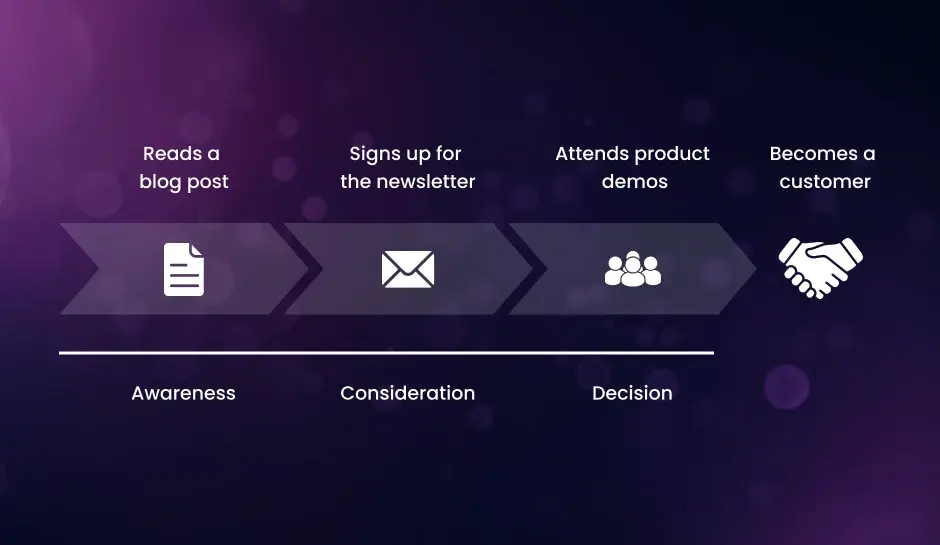Optimizing Performance: SEO Strategies with Google Tag Tracker
For efficient online or digital marketing, it is essential to have a good understanding of the website users and visitors. This blog will help you learn more about an efficient tool like Google Tag Tracker that can identify
As a website owner or digital marketer, understanding your website’s performance and user behavior is crucial for success. The ability to track and analyze website data allows you to make informed decisions, identify areas for improvement, and optimize your online presence. That is where Google Tag Tracker comes in.
Google Tag Tracker is a powerful tool provided by Google that allows you to track various aspects of your website, such as user interactions, conversions, and e-commerce transactions. By implementing tags on your web pages, Google Tag Tracker collects valuable data and provides detailed reports, giving you insights into your website’s performance and the effectiveness of your marketing efforts.
Whether you want to monitor the number of visitors on specific pages, track which buttons are clicked the most, or analyze the effectiveness of your advertising campaigns, Google Tag Tracker has the capabilities to empower you with the necessary information.
This article will explore the importance of tracking website data and user behavior and the features and benefits of using Google Tag Tracker. Discover how this tool can help you optimize your website, increase conversions, and make data-driven decisions to drive your online success.
Understanding Google Tag Tracker
Google Tag Tracker is a powerful tool for tracking and optimizing websites. It provides valuable insights into user behavior, helps improve marketing strategies, and enhances overall website performance.
Overview of Google’s tracking capabilities and tools
Google offers various tracking capabilities and tools to help businesses gather data and analyze user behavior. From tracking website visits to monitoring ad clicks, Google provides comprehensive solutions for companies of all sizes.
Introduction to Google Tag Manager as a critical component of Google Tag Tracker
Google Tag Manager is a crucial component of Google Tag Tracker. It allows businesses to quickly manage and deploy website tracking codes without needing edge. With Google Tag Manager, companies can save time and streamline their tracking processes.
Explanation of how Google Tag Tracker helps businesses optimize their websites
Google Tag Tracker helps businesses optimize their websites by providing valuable data on user behavior. By tracking various metrics, companies can identify areas for improvement, such as page load times, conversion rates, and user engagement. This data can then be used to make informed decisions and optimize website performance.
Benefits of Google Tag Tracker
- Improved web analytics:
- Enhanced digital marketing strategies:
- Advanced conversion tracking:
With Google Tag Tracker, businesses can gain valuable insights into user behavior and website performance. By tracking various user interactions, such as clicks, form submissions, and video views, companies can analyze their website’s effectiveness and make data-driven decisions to improve user experience.
Businesses can utilize the data collected from Google Tag Tracker. by using the data collected from Google Tag Tracker With a better understanding of user behavior and preferences, marketers can optimize their ads, content, and offers to increase engagement and conversions.
Google Tag Tracker enables businesses to track and analyze the effectiveness of their conversion funnel. Companies can identify bottlenecks and optimize their website or marketing strategy by setting up tags to monitor specific actions, such as purchases, sign-ups, or downloads. It helps maximize conversions and drive revenue growth.
Key Features of Google Tag Tracker
Google Tag Tracker offers a range of powerful features that can revolutionize your website’s tracking capabilities and provide valuable insights. Here are some of the key features:
Seamless tag implementation
Implementing tracking codes becomes effortless with Google Tag Manager. You can easily add and manage multiple tracking codes on your website without manual coding. This streamlined process ensures accurate and reliable tracking without any technical complexities.
Tag management systems
Google Tag Tracker simplifies the management of tags and tracking tools through its comprehensive tag management system. By centralizing all your tags in one place, you can efficiently monitor and update them as needed. The user-friendly interface allows for easy customization, testing, and deployment of tags, saving you time and effort.
E-commerce tracking
Google Tag Tracker offers advanced tracking capabilities for e-commerce websites. You can effortlessly track sales, transactions, and other crucial e-commerce data by implementing the tracking code. This information can then be used to gain valuable insights into your customers’ online shopping behavior, optimize your marketing strategies, and drive higher conversions.
Data Analysis with Google Tag Tracker
Data analysis is crucial to making informed business decisions. Businesses can gain valuable insights into their website traffic, user behavior, and campaign effectiveness by analyzing various metrics. The Google Tag Tracker is a powerful tool for data analysis.
The Google Tag Tracker is a versatile platform for tracking and analyzing website data. Its wide range of features enables businesses to understand their audience better, optimize marketing strategies, and improve overall performance.
Businesses can follow a step-by-step guide to leverage the power of the Google Tag Tracker for data analysis. Users can obtain more accurate and meaningful data by creating custom reports and dashboards. Custom reports can be tailored to focus on specific metrics relevant to the business goals. At the same time, dashboards visually represent the data for straightforward interpretation.
Google Tag Tracker also offers advanced features for data analysis, such as A/B testing and conversion tracking. A/B testing allows businesses to compare the performance of different versions of their website or landing pages, helping them identify the most effective design or content elements. Conversely, conversion tracking enables businesses to measure the success of their marketing campaigns by tracking specific user actions, such as purchases or form submissions.
By utilizing Google Tag Tracker’s data analysis capabilities, businesses can make data-driven decisions and optimize their strategies for maximum effectiveness. Whether it’s understanding website traffic patterns, analyzing user behavior, or evaluating campaign performance, the Google Tag Tracker is a powerful tool that empowers businesses to stay ahead of the competition.
Google Tag Tracker for Android Devices
In today’s mobile-first world, tracking user behavior on Android devices is crucial for businesses looking to optimize their mobile presence. With Google Tag Tracker, gaining valuable insights into user interactions on Android apps is easier than ever.
Overview of how Google Tag Tracker can be utilized for tracking user behavior on Android devices
Google Tag Tracker allows businesses to track user interactions within their Android apps. Whether it’s monitoring downloads, clicks, or specific actions taken within the app, Google Tag Tracker can provide valuable data to improve user experiences and boost app performance.
Explanation of the integration process with Android apps
Integrating Google Tag Tracker into Android apps is a seamless process. Businesses can start tracking user behavior instantly by adding a few lines of code to the app’s source code. The Google Tag Tracker API provides transparent documentation and guidelines for a smooth integration process, making it accessible for developers of all skill levels.
Benefits for businesses looking to optimize their mobile presence
Google Tag Tracker for Android devices offers several benefits for businesses aiming to optimize their mobile presence. Companies can make informed decisions to improve user experiences, enhance app functionalities, and drive conversions by understanding how users interact with their Android apps. Data analysis allows businesses to identify pain points, segment audiences, and tailor their app experiences based on user preferences.
Support and Resources
Introduction to Google’s customer support and assistance for Google Tag Tracker
Suppose you encounter any difficulties or have questions about implementing Tracker. In that case,
Google offers comprehensive customer support and assistance to help you navigate through challenges you may face. Their dedicated team of experts can provide guidance and address any concerns.
List of official documentation, guides, and tutorials available for users to learn more about Google Tag Manager and tracking implementation
- Google Tag Manager Help Center:
- Video Tutorials:
- Community Forums:
- Webinars and Events:
This extensive resource provides detailed documentation and step-by-step guides to help you effectively understand and utilize Google Tag Tracker.
Google offers a wide range of video tutorials that cover various topics related to Google Tag Manager and tracking implementation. These tutorials provide visual demonstrations and insights to enhance your learning experience.
Engage with other users and experts in the Google Tag Manager community forums. Here, you can ask questions, share experiences, and learn from the community’s collective knowledge.
Google frequently hosts webinars and events related to Google Tag Manager and tracking implementation. These sessions offer valuable insights and updates directly from Google’s team, allowing you to stay updated with the latest developments.
LeveragingLeveraging these support resources can enhance your understanding of Google Tag Tracker and ensure a seamless process of implementing tracking.
Conclusion
Final thoughts on how businesses can leverage the tool to enhance their online presence and improve marketing strategies:
Using Google Tag Tracker, businesses can better understand their target audience and tailor their marketing efforts accordingly.
It enables businesses to track their advertising campaigns’ effectiveness, identify improvement areas, and maximize their return on investment.
Google Tag Tracker empowers businesses to make informed decisions based on accurate data, leading to more successful marketing strategies and increased revenue.
Ready to get started?
Increase your marketing ROI by 30% with custom dashboards & reports that present a clear picture of marketing effectiveness
Start Free Trial
Experience Premium Marketing Analytics At Budget-Friendly Pricing.

Learn how you can accurately measure return on marketing investment.
Additional Resources
The Future of Marketing: How Predictive Lead and Account Scoring is Changing the Game
Can we, in this incredible marketing landscape driven...
Read full post postCloud Wars: A Comparative Analysis of Leading Cloud Vendors
How many companies are using cloud computing? Around...
Read full post postContent Marketing Attribution: Tracking Content Impact Across the Customer Journey
So, you've poured your heart into crafting the...
Read full post postFAQ
Google doesn't specifically offer a standalone "tracker tag." However, Google provides tracking capabilities through Google Analytics tags, managed using tools like Google Tag Manager.
Google tagging involves adding snippets of code (tags) to a website or app to collect data for analytics purposes. It is often done using Google Tag Manager, which streamlines the tagging process without manual code changes.
There is no specific product called "Google Tag Tracker." It might be a term confused with Google Tag Manager or other tracking tools related to Google Analytics.
Assuming "Google Tag Tracker" refers to Google Tag Manager, it works by allowing users to manage and deploy various tags, including Google Analytics, on a website. Users can update tracking configurations dynamically without modifying the website's source code.
Yes, you can use Google Tag Manager for e-commerce tracking. By setting up tags for Google Analytics enhanced e-commerce tracking through GTM, you can gather valuable data on user interactions, transactions, and other e-commerce metrics on your website.
 Rahul Saini
Rahul Saini  Sameer Pawar
Sameer Pawar 

